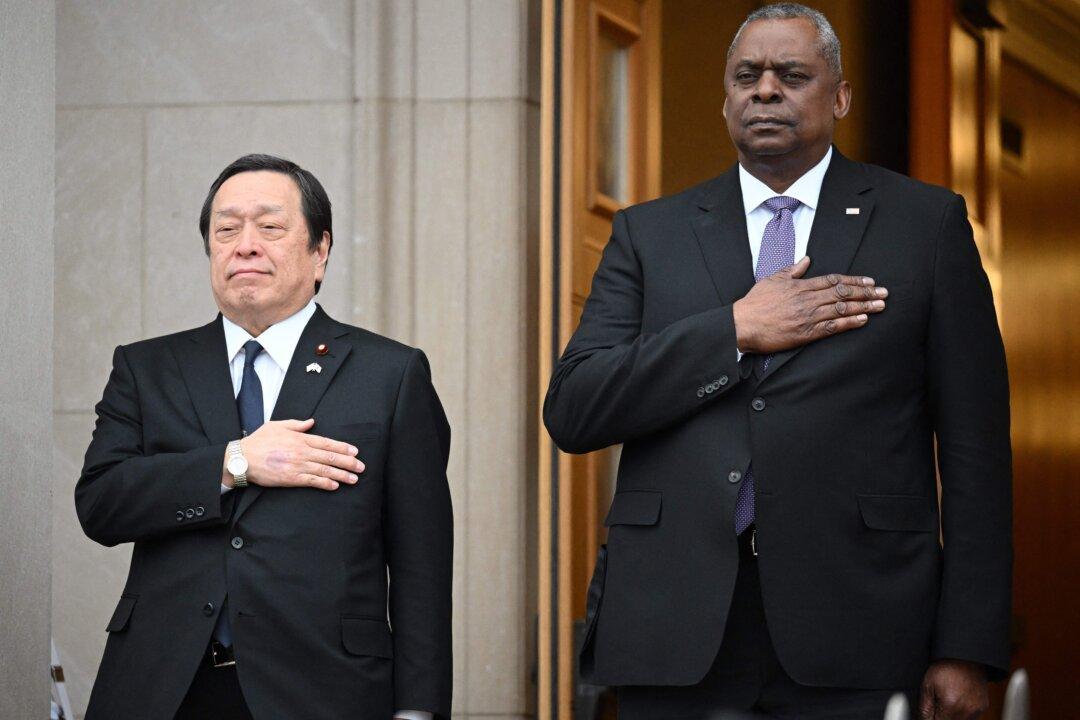The United States and Japanese defense chiefs signed two memorandums of understanding on Jan. 12 to expand cooperation in advanced technologies and defense supply chains as both nations seek to step up their alliance.
U.S. Secretary of Defense Lloyd Austin and Japanese Defense Minister Yasukazu Hamada signed the agreements during a meeting at the Pentagon, which Austin described as “a consequential moment” for the U.S.-Japan alliance.





